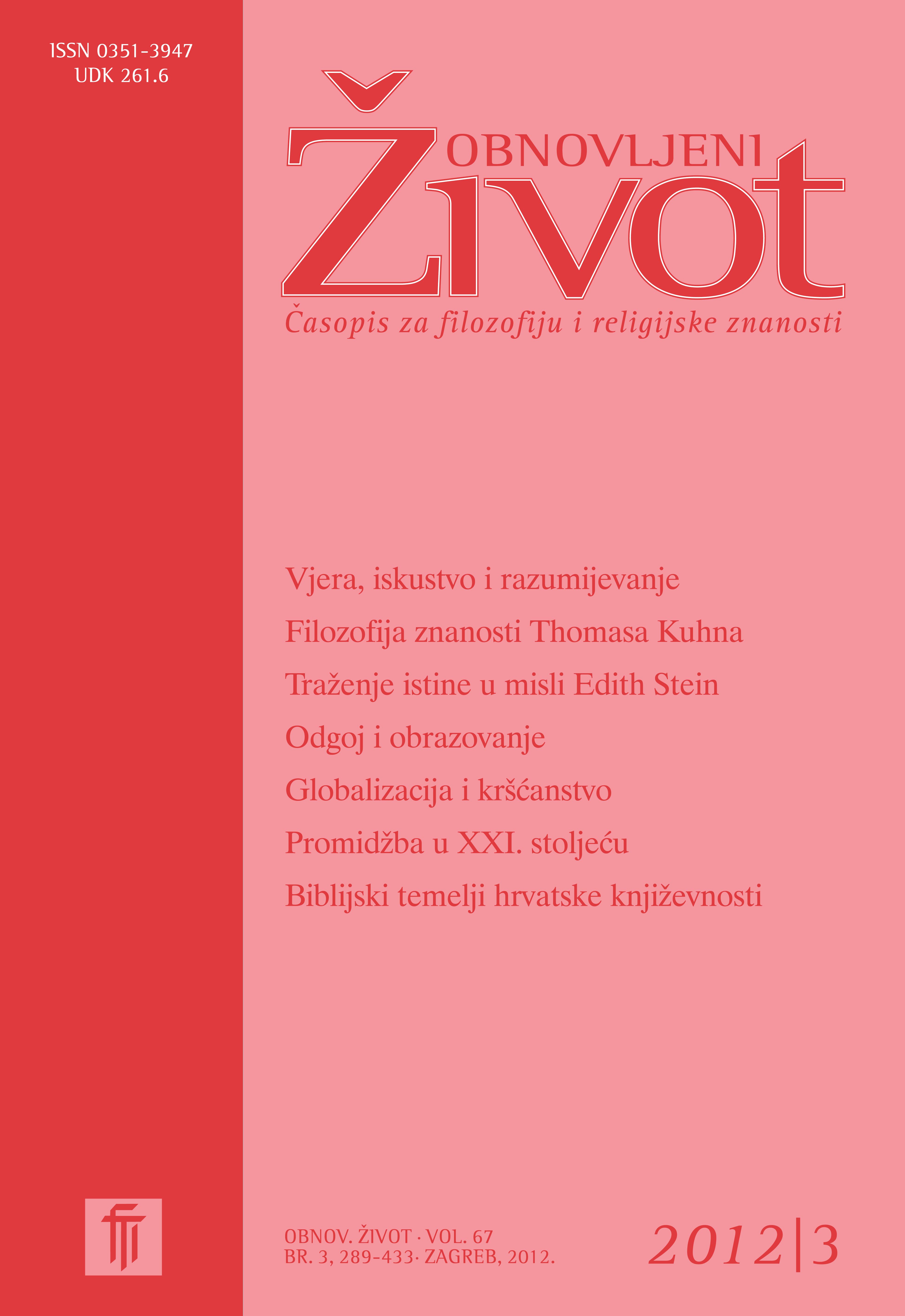Mutual Enrichment between Hellenism and Early Christianity in the Field od Education
Keywords:
Hellenism, Christianity, transcendence, immanence, educationAbstract
Christianity came to be in a Hellenised Roman Empire in which manifold religious points of view and tensions abounded. These were not rejected as obstacles by Christ's followers but were accepted as challenges, and thus they began to build a different relationship toward life, not determined by origin, knowledge, possessions and gender. In worldly terms they were free but not disinterested, and therefore in Christianity, which thrives on transcendence, immanence grew to be valued moreso than it was in the world itself. All this as the didactic content shaped the teachings of the Church, order, government administration, moral order, and tradition while an active relationship toward Hellenism was maintained. The followers of Christ realized that primordial humanity can be an ideal foundation for Christianity which, unlike human nature, brings with it the element of grace which cannot be exacted or overpowered by human endeavour or effort. Within the great range between total rejection and absolute acceptance of Hellenistic-Roman content and custom, early Christian speculators found the space for a middle road, for discourse and critical reflection over that which they encountered; also, for incorporating general human values shaped by human genius over the centuries into the Christian world of reflection and praxis. In this way the Hellenistic didascalic heritage became part of the Christian educational system and shall continue to be the foundation for understanding life, the individual and society as a whole.
Downloads
Published
Issue
Section
License
Jednom prihvaćeni članak obvezuje autora da ga ne smije objaviti drugdje bez dozvole uredništva, a i tada samo uz bilješku da je objavljen prvi put u Obnovljenom životu. Uredništvo će obavijestiti autora o prihvaćanju ili neprihvaćanju članka za objavljivanje.
Članci objavljeni u časopisu se, uz prikladno navođenje izvora, smiju besplatno koristiti u obrazovne i druge nekomercijalne svrhe.


